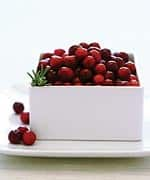Life Extension Magazine®
Alarming statistics now show that tens of millions of Americans are infected with Helicobacter pylori (H. pylori), a strain of bacteria that is implicated in the vast majority of gastric ulcers and can even lead to deadly stomach cancer. Not surprisingly, gastric distress is one of the most common complaints that prompt men and women to visit their doctors. Each day, your stomach may be subjected to factors that can induce gastric discomfort and disease, ranging from alcohol and prescription medications to chronic stress and dietary indiscretions. In many cases, however, a routine visit to the doctor is not enough to provide effective, long-lasting relief of stomach distress. Over-the-counter and prescription remedies are often expensive, carry the risk of side effects, and offer only limited relief for gastric upset. Moreover, these stomach aids are increasingly less effective at eradicating H. pylori infection. Fortunately, scientists have identified novel nutritional and herbal agents that provide synergistic support for stomach health and integrity by relieving inflammation, promoting tissue repair, and supporting the body’s defenses against H. pylori. One of these remedies—a complex of zinc and carnosine—was previously available only in Japan as a prescription drug for ulcers, but is now readily accessible as a dietary supplement in the United States. Together, these natural agents can serve as the foundation of a strategy to safely and effectively relieve chronic gastric distress and restore stomach health and comfort. Getting to the Bottom of Gastric Distress
Stomach ulcers affect 20 million Americans, and even greater numbers suffer from heartburn and other gastrointestinal symptoms. In addition to producing disabling stomach pain, ulcers may cause bleeding or perforation of the stomach wall. Ulcers are responsible for 6,000 deaths and more than 1 million hospitalizations in the US each year. A revolutionary discovery by Barry J. Marshall and J. Robin Warren so changed our thinking about what causes ulcers that their research was rewarded the 2005 Nobel Prize in Physiology or Medicine. Contrary to popular belief, ulcers are not caused by stress or spicy foods, but rather by stomach infection with the bacterium Helicobacter pylori. This bacterium is the culprit in nearly 80% of stomach ulcers and in more than 90% of ulcers in the duodenum, the first portion of the small intestine. Most of the remaining ulcers are associated with the widespread use of pain relievers known as nonsteroidal anti-inflammatory drugs, or NSAIDs.1 Cells in the stomach lining require chemicals known as prostaglandins to produce a thick coating of gelatinous mucus. This mucosal lining acts as a natural defense by keeping acid contained in digestive juices from burning the stomach wall and by preventing harmful bacteria from entering the bloodstream or lymphatic system. NSAIDs block the production of prostaglandins, thus relieving pain and inflammation but also leaving the stomach lining susceptible to ulceration and invasion by H. pylori. In the Western world, up to half of all people harbor H. pylori in their stomachs, as do even more people in undeveloped countries.2 While infection with H. pylori often causes no symptoms, it can cause gastritis, or chronic inflammation of the lower stomach wall. This in turn results in increased acid production from the non-infected upper stomach, which creates favorable conditions for the erosion or ulceration of the mucosal lining in the stomach or duodenum. About 10-15% of individuals infected with H. pylori will eventually develop peptic ulcer disease. When the upper region of the stomach is also infected with H. pylori, the resulting inflammation sets the stage for stomach cancer or a specific type of stomach lymphoma. Eradicating H. pylori is therefore important not only to avoid ulcers, but also to lower the risk of developing malignant tumors.3 Since the discovery of how H. pylori affects the stomach, conventional treatment for ulcers and H. pylori infection has focused on antibiotics to eradicate the bacteria, medication to suppress acid production in the stomach, and an agent to protect the stomach’s lining.1 H. pylori is frequently difficult to eradicate, however, even with long-term use of these medications. Further compounding the problem is that H. pylori often develops resistance to antibiotics, thus rendering treatment ineffective.4 As a result, alternative or complementary strategies to support stomach health are sorely needed. Fortunately, health-conscious consumers in the United States can now access an effective, natural approach to restoring stomach health. Approved in Japan as a drug to treat ulcers, a novel zinc-carnosine compound has been found to strengthen the mucosal barrier, coat the stomach, and inhibit both the growth and damaging effects of H. pylori. These benefits of zinc-carnosine are enhanced by cranberry and licorice, two natural agents that also support gastric health while diminishing the effects of H. pylori.
How Zinc-Carnosine Inhibits H. pyloriScientists have long known that zinc and L-carnosine have antioxidant properties that promote tissue repair and healing.5,6 Zinc is an essential mineral contained in oysters, meat, seafood, beans, and nuts. L-carnosine, found in meat and beans, consists of two essential amino acids—L-histidine and beta-alanine—that are bonded together. When zinc and L-carnosine are linked by chemical bond in a single molecule, or chelated, their tissue-healing effects become even more remarkable. In fact, research suggests that a dietary supplement containing chelated zinc and L-carnosine is far more effective than a mixture of zinc and L-carnosine that is not linked with a chemical bond in reducing stomach irritation associated with H. pylori and repairing the inflamed stomach mucosal lining.7 This chelated formulation of zinc and L-carnosine, which is known as polaprezinc, is approved in Japan as the active ingredient in a well-known prescription drug to treat ulcers. Studies show that both components of the compound remain bound together for some time in gastric juice and that they coat stomach ulcers, releasing L-carnosine and zinc, which help promote the healing of stomach ulcerations and exert inhibitory effects against H. pylori. The zinc-carnosine complex which is now available to Americans as a dietary supplement is biochemically identical to the Japanese drug polaprezinc, and scientists believe it is equally efficacious and without any serious side effects.8 Animal studies have offered clues as to the mechanism by which the zinc-carnosine complex helps relieve stomach inflammation associated with H. pylori infection. The zinc-carnosine complex acts as a scavenger to consume a harmful agent called monochloramine that is released by H. pylori bacteria. Monochloramine contributes to injury of the stomach’s lining. By neutralizing this harmful agent, zinc-carnosine thereby reduces inflammation of the stomach lining, prevents invasion by white blood cells, and averts erosion of epithelial cells lining the stomach.9,10 Other researchers have similarly found that zinc-carnosine helps protect against gastritis induced by monochloramine released by H. pylori, and also helps heal existing stomach lesions related to the effects of H. pylori.11 For example, in rats that are prone to develop stomach ulcers, zinc-carnosine accelerated healing of these ulcers by increasing production of insulin-like growth factor-1 (IGF-1), a natural defense known to promote gastric epithelial wound repair.12 By stimulating IGF-1 production, zinc-carnosine was similarly found to protect rabbit stomach cells in the laboratory, thereby promoting healing of stomach lesions.13 Zinc-carnosine has also been shown to enhance healing of the stomach epithelial lining, by inhibiting production of pro-inflammatory interleukin-8 and by preventing inflammatory white blood cells from adhering to epithelial cells.14,15 Additionally, scientists have noted that zinc-carnosine decreases the activation of nuclear factor-kappa beta (NFkB), a powerful inflammatory mediator that scientists believe plays a role in numerous chronic disease states such as cancer and arthritis.14 Scientists believe that strategies to reduce the activity of NFkB may benefit the entire body by helping to avert such diverse conditions as cancer, diabetes, and heart disease. (See “What Is Nuclear Factor-Kappa Beta?” Life Extension, July 2006.) Zinc-carnosine is thus emerging as a powerful anti-inflammatory agent offering specialized protection for the stomach.
| ||||||
Targeted Protection Against Stomach-Damaging AgentsNumerous medications, foods, and beverages that we consume daily can cause damage to the delicate lining of the mouth and stomach. Fortunately, zinc-carnosine appears to offer significant protection against these specific threats. For example, NSAIDs such as aspirin, Advil®, and Motrin® are widely used to fight pain, inflammation, and fever. However, these agents are also associated with damage to the stomach. In animal studies, zinc-carnosine protects stomach mucosal cells against injury caused by NSAIDs.16 A recent study from the Imperial College of London, United Kingdom, tested zinc-carnosine in animal and human cells in the laboratory, as well as in human volunteers.17 These studies showed that zinc-carnosine stabilizes the small intestine membrane and stimulates intestinal repair, while protecting the bowel wall against the corrosive effects of NSAIDs.
Mouth sores can be painful and may interfere with the enjoyment of foods and beverages. In additional research, a zinc-carnosine combination protected the mouth lining against ulceration caused by vinegar.18 While alcoholic beverages are widely enjoyed socially, they can cause damage to the stomach's lining. Fortunately, zinc-carnosine may offer targeted protection against alcohol's adverse effects. Studies of rat gastric cells grown in the laboratory showed that the antioxidant properties of zinc-carnosine protected the cells from harmful chemicals, including alcohol. Scientists note that zinc-carnosine directly protects gastric mucosal cells due to its antioxidant effects.19 Pharmaceutical treatment of ulcers caused by H. pylori infection is not 100% effective, possibly due to the increasing worldwide prevalence of antibiotic-resistant bacteria.4 In Japan, physicians utilize zinc-carnosine complex as part of a treatment plan for healing ulcers. Exciting new research from Japan confirms that zinc-carnosine may indeed enhance the efficacy of pharmaceutical strategies to eradicate H. pylori. In a Japanese study of 66 patients with gastrointestinal symptoms related to H. pylori infection, researchers compared the efficacy of seven-day triple-antibiotic therapy (with the drugs lansoprazole, amoxicillin, and clarithromycin) given with or without zinc-carnosine.20 While 86% of the patients treated only with the antibiotics experienced eradication of H. pylori, 100% of the patients who received the antibiotics plus zinc-carnosine eradicated H. pylori. The scientists noted that while seven days of therapy with the three antibiotics is effective in eradicating H. pylori, the regimen's efficacy is significantly improved by the addition of polaprezinc. While the Japanese require a prescription to obtain the benefits of polaprezinc, Americans can access this important ulcer-fighting therapeutic as a dietary supplement. Zinc-carnosine has been used widely in human clinical trials for over a decade. In clinical trials enrolling a total of 691 patients, 70% experienced remarkable improvement in symptoms, and 65% of patients demonstrated evidence of healing on gastrointestinal imaging tests after eight weeks of using zinc-carnosine complex.8 These impressive findings confirm that zinc-carnosine offers effective relief from symptoms of stomach discomfort while producing visible changes in measurements of stomach integrity and health. Licorice Heals Stomach Lining, Blocks H. pylori GrowthOne of the most time-honored natural remedies for gastric upset is licorice root, an herbal extract. Modern research confirms what herbal practitioners have known for centuries: that licorice promotes healing of the stomach's lining. According to Dr. Michael Baker, a research professor of medicine at the University of California, San Diego, licorice has long been known to help promote the healing of ulcers. Baker notes that licorice-derived compounds have the effect of raising the local concentration of prostaglandins that promote mucous secretion and cell proliferation in the stomach, leading to healing of ulcers.21 An extensive review of the scientific literature on plant-based ulcer remedies confirms the clinical efficacy of licorice in promoting the healing of ulcers.22 Recent studies have revealed how licorice may help promote this healing process. Animal research suggests that licorice reduces the inflammatory response leading to ulcer formation by inhibiting the production of pro-inflammatory molecules, including interleukins and tumor necrosis factor.23 The potent antioxidant activity of licorice also contributes to its anti-ulcer activity.24 Licorice extract does much more than promote healing of the stomach lining. Even more important, various extracts of licorice have been shown to block the growth of H. pylori in the laboratory25—even of strains of the bacteria that are resistant to the antibiotic clarithromycin.26 Licorice extract's effectiveness against clarithromycin-resistant strains has led scientists to propose that licorice may have a place as an alternative therapeutic agent against H. pylori. Further analysis of different extracts from licorice has shown that they contain several beneficial flavonoid compounds that can inhibit the growth of H. pylori, including strains of the bacteria that are resistant to the antibiotics amoxicillin and clarithromycin.27 This remarkable finding led scientists to propose that such compounds from licorice may be useful preventive agents for peptic ulcer or gastric cancer in H. pylori-infected individuals.
High doses of compounds known as glycyrrhizinates, which are found in licorice, have been associated with various side effects, including high blood pressure, low blood potassium levels, hormonal changes, and diarrhea.28,29 Scientists have found that these side effects can be avoided by removing glycyrrhizin from the licorice, without reducing the activity of licorice in alleviating ulcer symptoms and in blocking H. pylori growth.29 Licorice from which glycyrrhizinates have been removed is known as deglycyrrhizinated licorice, or DGL. Licorice may specifically protect against ulcers caused by NSAIDs. Research has shown that coating aspirin with licorice before feeding it to rats reduced the number and size of ulcers that subsequently formed, cutting their incidence by more than half, from 96% to 46%.30 NSAID-induced damage to gastric mucosal lining was reduced to a greater extent when DGL was given in combination with the acid-suppressing drug cimetidine, as compared to administering cimetidine alone.31 When human volunteers who were being treated with aspirin (975 mg three times a day) also took 350 mg of DGL with each dose of aspirin, they demonstrated less blood loss in the stool than did patients who took aspirin without licorice.32 DGL is believed to stimulate defense mechanisms that help prevent ulcer formation and also promote the healing of damaged mucosal lining in the stomach. Cranberry Retards H. pylori Growth in Several WaysCranberry has long been valued for its role in promoting the health of the urinary system. New evidence suggests that cranberry may also be a potential ally in the battle against stomach erosions. Laboratory studies suggest that, like licorice extract, mixtures of cranberry and other plant extracts inhibit the growth of H. pylori, most likely by inhibiting a bacterial enzyme and disrupting energy production.4 An exciting study suggests that cranberry may help fight H. pylori infection in adults. In a well-controlled, double-blind Chinese study, 189 adults with H. pylori infection were randomly assigned to receive two 250-ml juice boxes of cranberry juice or a matching placebo beverage daily. After 35 days, 14 patients (14.4%) from the cranberry juice treatment group and 5 (5.4%) from the placebo group tested negative for H. pylori. Since cranberry juice can help retard H. pylori infection in humans, it may be a promising new therapy for managing this infection without inducing the side effects commonly caused by antibiotics.33 Cranberry's ability to retard the growth of H. pylori may in part reflect its high content of beneficial compounds that include proanthocyanidins and other antioxidants such as vitamin C and bioflavonoids.33 In fact, the antioxidant potency of these proanthocyanidins is much stronger than that of even vitamin C or vitamin E, allowing these compounds to scavenge harmful free radicals while inhibiting enzymes needed for bacterial growth.34 Phytochemicals in cranberry extract may disrupt the structure and stability of H. pylori's bacterial membrane by increasing its acid content and inhibiting an enzyme needed for energy metabolism. Many of these compounds appear to work together, producing a synergistic effect that is much greater than the sum of their parts.35
One way that H. pylori does its damage is by adhering to gastric cells using a cellular type of “glue” that contains sialic acid. Cranberry extract contains a high-molecular-weight compound that prevents this bacterial adhesion to gastric cells.36 This novel mechanism of action has led researchers to suggest that a combination of antibiotics and a cranberry preparation may improve H. pylori eradication. In the laboratory, extracts of various berries, including cranberry, were shown to increase the susceptibility of H. pylori to the antibiotic clarithromycin.37 However, grape, orange, apple, and white cranberry juice lack the anti-adhesive activity of cranberry extract, which may also explain the unique ability of cranberry juice to help prevent urinary tract infections and mouth ulcers.38 Cranberry's ability to inhibit adhesion of bacteria to the stomach may prove useful in preventing stomach ulcers caused by H. pylori.39 ConclusionAlcohol, pharmaceuticals, fast food, chronic stress—taken together, these ubiquitous elements of modern life can be a potent recipe for both short-term gastric distress and serious damage to the stomach over the longer term. These threats are further magnified by the unrelenting spread of the ulcer-inducing agent H. pylori, which is now believed to affect up to one half of the US population. Fortunately, a trio of natural therapeutics—zinc-carnosine, licorice extract, and cranberry—can provide safe, effective, synergistic support for stomach health, without the high cost and adverse side effects associated with over-the-counter and prescription stomach aids. While zinc-carnosine complex is available in Japan only as a prescription drug to treat ulcers, it is now readily available in the United States as a dietary supplement. This combination of novel agents relieves gastric distress and promotes stomach health by supporting the body's natural defenses against H. pylori, alleviating the effects of numerous stomach-damaging agents, and promoting gastric healing. | |||
| References | |||
| 1. Dajani EZ, Klamut MJ. Novel therapeutic approaches to gastric and duodenal ulcers: an update. Expert Opin Investig Drugs. 2000 Jul;9(7):1537-44. 2. Available at: http://digestive.niddk.nih.gov/ddiseases/pubs/hpylori/. Accessed September 21, 2006. 3. Kusters JG, van Vliet AH, Kuipers EJ. Pathogenesis of Helicobacter pylori infection. Clin Microbiol Rev. 2006 Jul;19(3):449-90. 4. Lin YT, Kwon YI, Labbe RG, Shetty K. Inhibition of Helicobacter pylori and associated urease by oregano and cranberry phytochemical synergies. Appl Environ Microbiol. 2005 Dec;71(12):8558-64. 5. Quinn PJ, Boldyrev AA, Formazuyk VE. Carnosine: its properties, functions and potential therapeutic applications. Mol Aspects Med. 1992;13(5):379-444. 6. Yoshikawa T, Naito Y, Tanigawa T, Yoneta T, Kondo M. The antioxidant properties of a novel zinc-carnosine chelate compound, N-(3-aminopropionyl)-L-histidinato zinc. Biochim Biophys Acta. 1991 Nov 14;1115(1):15-22. 7. Odashima M, Otaka M, Jin M, et al. Induction of a 72-kDa heat-shock protein in cultured rat gastric mucosal cells and rat gastric mucosa by zinc L-carnosine. Dig Dis Sci. 2002 Dec;47(12):2799-804. 8. Matsukura T, Tanaka H. Applicability of zinc complex of L-carnosine for medical use. Biochemistry (Mosc.). 2000 Jul;65(7):817-23. 9. Ishihara R, Iishi H, Sakai N, et al. Polaprezinc attenuates Helicobacter pylori-associated gastritis in Mongolian gerbils. Helicobacter. 2002 Dec;7(6):384-9. 10. Suzuki H, Mori M, Seto K, et al. Polaprezinc attenuates the Helicobacter pylori-induced gastric mucosal leucocyte activation in Mongolian gerbils—a study using intravital videomicroscopy. Aliment Pharmacol Ther. 2001 May;15(5):715-25. 11. Nishiwaki H, Kato S, Sugamoto S, et al. Ulcerogenic and healing impairing actions of monochloramine in rat stomachs: effects of zinc L-carnosine, polaprezinc. J Physiol Pharmacol. 1999 Jun;50(2):183-95. 12. Kato S, Tanaka A, Ogawa Y, et al. Effect of polaprezinc on impaired healing of chronic gastric ulcers in adjuvant-induced arthritic rats—role of insulin-like growth factors (IGF)-1. Med Sci Monit. 2001 Jan;7(1):20-5. 13. Watanabe S, Wang XE, Hirose M, et al. Insulin-like growth factor I plays a role in gastric wound healing: evidence using a zinc derivative, polaprezinc, and an in vitro rabbit wound repair model. Aliment Pharmacol Ther. 1998 Nov;12(11):1131-8. 14. Handa O, Yoshida N, Tanaka Y, et al. Inhibitory effect of polaprezinc on the inflammatory response to Helicobacter pylori. Can J Gastroenterol. 2002 Nov;16(11):785-9. 15. Shimada T, Watanabe N, Ohtsuka Y, et al. Polaprezinc down-regulates proinflammatory cytokine-induced nuclear factor-kappaB activiation and interleukin-8 expression in gastric epithelial cells. J Pharmacol Exp Ther. 1999 Oct;291(1):345-52. 16. Fuji Y, Matsura T, Kai M, Kawasaki H, Yamada K. Protection by polaprezinc, an anti-ulcer drug, against indomethacin-induced apoptosis in rat gastric mucosal cells. Jpn J Pharmacol. 2000 Sep;84(1):63-70. 17. Mahmood A, Fitzgerald AJ, Marchbank T, et al. Zinc carnosine, a health food supplement that stabilises small bowel integrity and stimulates gut repair processes. Gut. 2006 Jun 15. 18. Katayama S, Nishizawa K, Hirano M, Yamamura S, Momose Y. Effect of polaprezinc on healing of acetic acid-induced stomatitis in hamsters. J Pharm Pharm Sci. 2000 Jan;3(1):114-7. 19. Hiraishi H, Sasai T, Oinuma T, et al. Polaprezinc protects gastric mucosal cells from noxious agents through antioxidant properties in vitro. Aliment Pharmacol Ther. 1999 Feb;13(2):261-9. 20. Kashimura H, Suzuki K, Hassan M, et al. Polaprezinc, a mucosal protective agent, in combination with lansoprazole, amoxycillin and clarithromycin increases the cure rate of Helicobacter pylori infection. Aliment Pharmacol Ther. 1999 Apr;13(4):483-7. 21. Baker ME. Licorice and enzymes other than 11 beta-hydroxysteroid dehydrogenase: an evolutionary perspective. Steroids. 1994 Feb;59(2):136-41. 22. Borrelli F, Izzo AA. The plant kingdom as a source of anti-ulcer remedies. Phytother Res. 2000 Dec;14(8):581-91. 23. Kim JK, Oh SM, Kwon HS, et al. Anti-inflammatory effect of roasted licorice extracts on lipopolysaccharide-induced inflammatory responses in murine macrophages. Biochem Biophys Res Commun. 2006 Jul 7;345(3):1215-23. 24. Bafna PA, Balaraman R. Anti-ulcer and anti-oxidant activity of pepticare, a herbomineral formulation. Phytomedicine. 2005 Apr;12(4):264-70. 25. O'Mahony R, Al-Khtheeri H, Weerasekera D, et al. Bactericidal and anti-adhesive properties of culinary and medicinal plants against Helicobacter pylori. World J Gastroenterol. 2005 Dec 21;11(47):7499-507. 26. Krausse R, Bielenberg J, Blaschek W, Ullmann U. In vitro anti-Helicobacter pylori activity of Extractum liquiritiae, glycyrrhizin and its metabolites. J Antimicrob Chemother. 2004 Jul;54(1):243-6. 27. Fukai T, Marumo A, Kaitou K, et al. Anti-Helicobacter pylori flavonoids from licorice extract. Life Sci. 2002 Aug 9;71(12):1449-63. 28. van Uum SH. Liquorice and hypertension. Neth J Med. 2005 Apr;63(4):119-20. 29. Isbrucker RA, Burdock GA. Risk and safety assessment on the consumption of Licorice root (Glycyrrhiza sp.), its extract and powder as a food ingredient, with emphasis on the pharmacology and toxicology of glycyrrhizin. Regul Toxicol Pharmacol. 2006 Jul 31. 30. Dehpour AR, Zolfaghari ME, Samadian T, Vahedi Y. The protective effect of liquorice components and their derivatives against gastric ulcer induced by aspirin in rats. J Pharm Pharmacol. 1994 Feb;46(2):148-9. 31. Bennett A, Clark-Wibberley T, Stamford IF, Wright JE. Aspirin-induced gastric mucosal damage in rats: cimetidine and deglycyrrhizinated liquorice together give greater protection than low doses of either drug alone. J Pharm Pharmacol. 1980 Feb;32(2):151. 32. Rees WD, Rhodes J, Wright JE, Stamford LF, Bennett A. Effect of deglycyrrhizinated liquorice on gastric mucosal damage by aspirin. Scand J Gastroenterol. 1979;14(5):605-7. 33. Zhang L, Ma J, Pan K, et al. Efficacy of cranberry juice on Helicobacter pylori infection: a double-blind, randomized placebo-controlled trial. Helicobacter. 2005 Apr;10(2):139-45. 34. Ariga T. The antioxidative function, preventive action on disease and utilization of proanthocyanidins. Biofactors. 2004;21(1-4):197-201. 35. Vattem DA, Ghaedian R, Shetty K. Enhancing health benefits of berries through phenolic antioxidant enrichment: focus on cranberry. Asia Pac J Clin Nutr. 2005;14(2):120-30. 36. Shmuely H, Burger O, Neeman I, et al. Susceptibility of Helicobacter pylori isolates to the antiadhesion activity of a high-molecular-weight constituent of cranberry. Diagn Microbiol Infect Dis. 2004 Dec;50(4):231-5. 37. Chatterjee A, Yasmin T, Bagchi D, Stohs SJ. Inhibition of Helicobacter pylori in vitro by various berry extracts, with enhanced susceptibility to clarithromycin. Mol Cell Biochem. 2004 Oct;265(1-2):19-26. 38. Johnson-White B, Buquo L, Zeinali M, Ligler FS. Prevention of nonspecific bacterial cell adhesion in immunoassays by use of cranberry juice. Anal Chem. 2006 Feb 1;78(3):853-7. 39. Burger O, Weiss E, Sharon N, et al. Inhibition of Helicobacter pylori adhesion to human gastric mucus by a high-molecular-weight constituent of cranberry juice. Crit Rev Food Sci Nutr. 2002;42(3 Suppl):279-84. 40. Willette RC, Barrow L, Doster R, Wilkins J, Wilkins JS, Heggers JP. Purified d-limonene: an effective agent for the relief of occasional symptoms of heartburn. Proprietary study. WRC Laboratories, Inc. Galveston, TX. 41. Wilkins J. Personal communication with Life Extension. June 27, 2006. |





